Daniel Penny, charged with killing Jordan Neely, is gaining prayers, millions in donor dollars. Big names are helping.
May 18, 2023, 3:34 p.m.
Whether the support carries over to a Manhattan courtroom is another matter, but it points up the heavy lift before prosecutors.
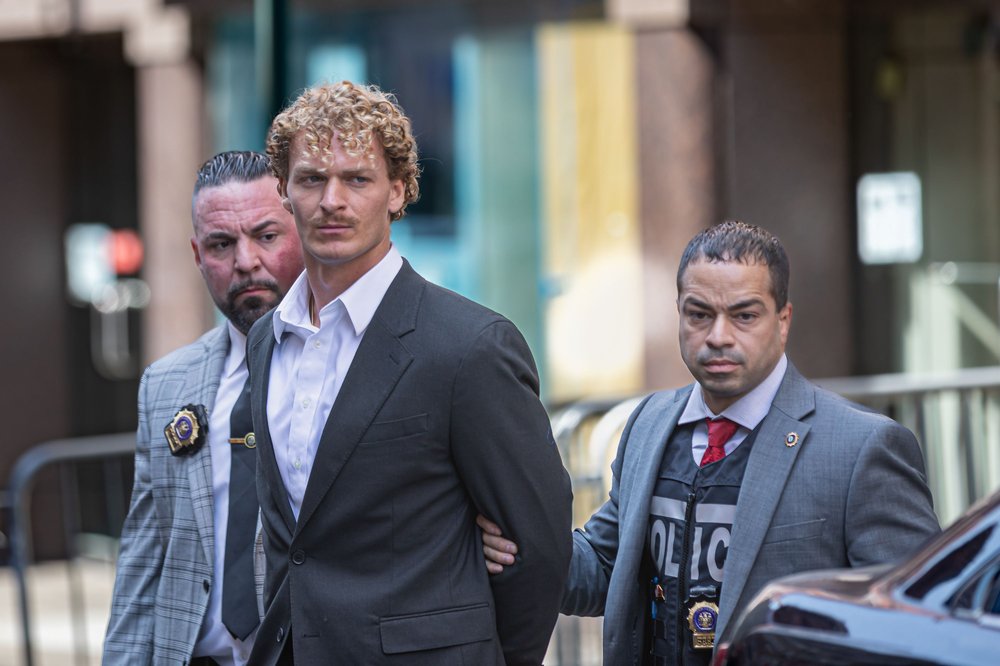
A legal defense fund established on behalf of Daniel Penny, who has been charged in the chokehold killing of Jordan Neely on a subway car, has swelled to more than $2.67 million in a matter of days.
More than 54,000 people have donated to the fund set up by Penny’s lawyers on GiveSendGo, which bills itself as the “#1 Free Christian Fundraising Site” and “leading freedom fundraising platform.” Some 40,000 have offered their prayers as well. The fund was created last week by the law firm Raiser & Kenniff, P.C., and the money and prayers have flowed since – right along with the veneration of Penny by conservative politicians and other voices.
Donations have ranged from a few dollars to the thousands, including $10,000 from Vivek Ramaswamy, a Republican running for president, $5,000 from the musician Kid Rock and $20,000 from conservative commentator Timothy Pool. Penny, 24, has been arraigned on a second-degree manslaughter charge and has not yet entered a plea. The website does not indicate the origin of the donations, but the size and breadth of the support lay bare the challenge for prosecutors seeking to convict the decorated Marine veteran.
The killing of Neely, 30, on May 1 touched off days of demonstrations. Many protesters questioned why his killer wasn’t immediately arrested and charged. A widely viewed phone video showed Penny holding Neely in a chokehold on the floor of an F train subway car until his body went limp. Penny was charged on May 12 after additional investigation and pleas by prosecutors for witnesses to come forward, and remains free on $100,000 bail. Little has been made public about exactly what transpired before Penny’s intervention, except that Neely had been acting erratically. On GiveSendGo, however, donors have already made up their minds.
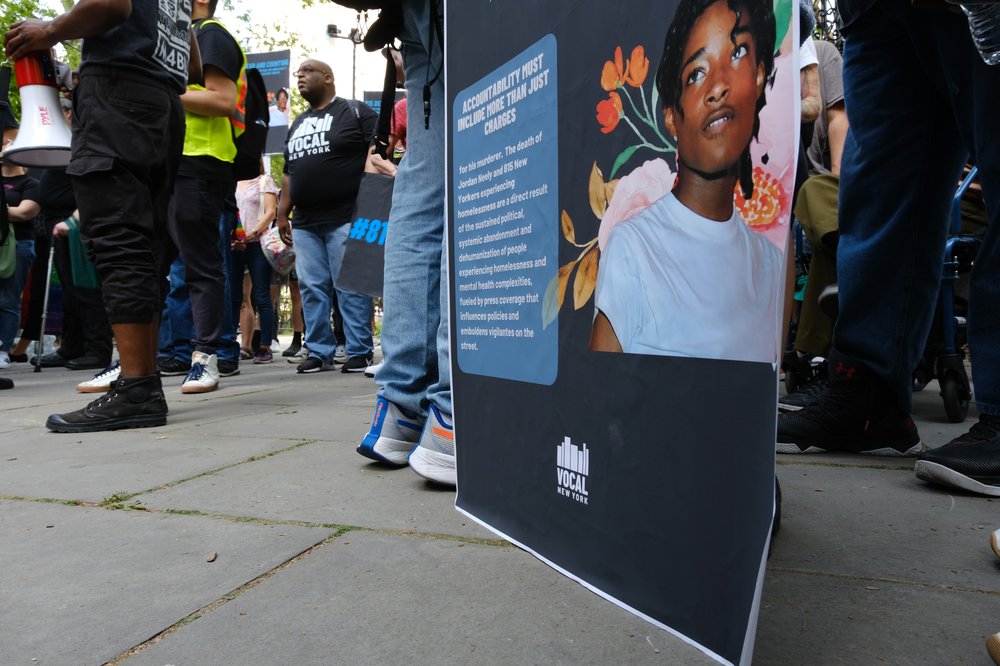
Several donors refer to him as a “hero,” an “American hero,” a “Good Samaritan,” an “American Patriot” and a “protector.” Accompanying the online applause is a stream of support from conservative commentators and politicians, including Gov. Ron DeSantis of Florida and former South Carolina Gov. Nikki Haley, both Republicans.
The outsize showing – crowdfunding campaigns rarely reach six-figure sums, let alone seven figures – comes at a time when conservative lawmakers and right-leaning media have branded New York City as the embodiment of urban lawlessness, with Manhattan District Attorney Alvin Bragg caricatured as its chief enabler. A GOP-led House committee held a hearing in New York highlighting crime last month – amid Bragg’s prosecution of former President Donald Trump in the Stormy Daniels hush money payments scandal.
Whether the attention translates into support for Penny in a Manhattan courtroom is a different matter. But Ross Sandler, a former federal prosecutor, said the notoriety of the case “greatly” increases the burden on Bragg to convince a jury that Penny’s response was disproportionate to the threat posed by Neely, a Michael Jackson impersonator with a history of mental illness and arrests. Witnesses have said Neely was acting erratically before Penny intervened, but no one has publicly stated he threatened anyone.
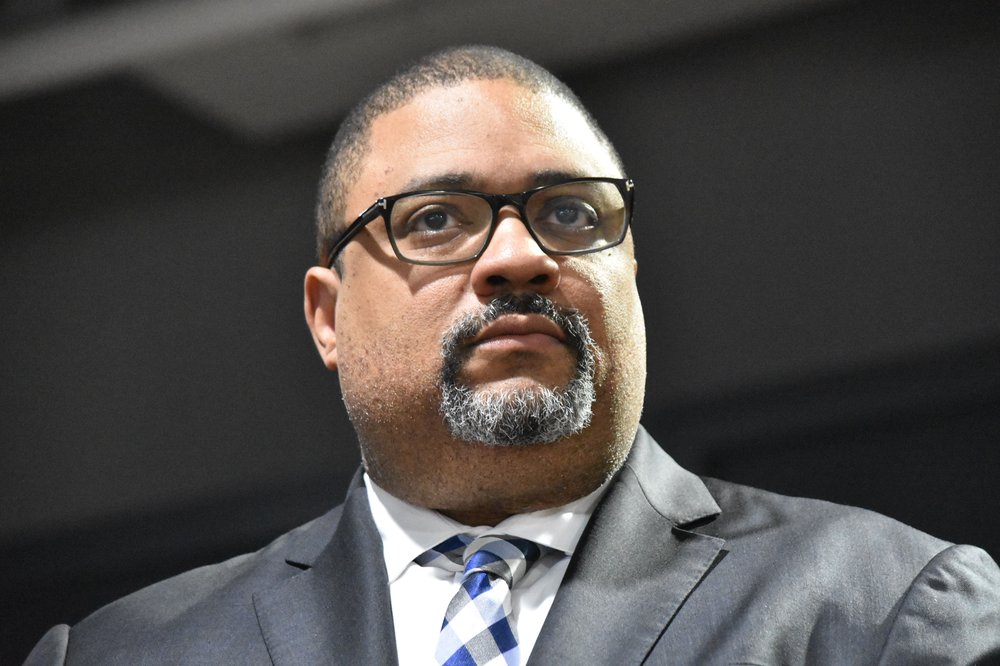
“Self-defense implies that the response be proportional to the threat reasonably to be perceived,” said Sandler, who teaches at New York Law School. “The publicizing of sensational crimes in the subways and the Supreme Court’s embracing of gun availability as a constitutional right will all work to Penny’s advantage.”
Bennett Gershman, a law professor at Pace University, said it fell on Bragg to put aside public perceptions “distorted by race, stereotypes and conspiratorial rantings.”
The publicizing of sensational crimes in the subways and the Supreme Court’s embracing of gun availability as a constitutional right will all work to Penny’s advantage.
Ross Sandler, a former federal prosecutor
The work of district attorneys invariably puts them in conflict with different segments of the population, Gershman said. He added that in Manhattan, Bragg’s prosecution of Trump has resulted in “crazy attacks on him and his office,” while in the Bronx and other parts of the city, prosecutors have faced “heavy backlash” from the community for relying on the testimony of police officers.
“Prosecutors have to make difficult judgments about the quality of the evidence in a political context that some times defies clear and accurate decision-making,” said Gershman, in an email. “As they say, it goes with the territory.”
Lawyers for the Neely family did not respond to a request for comment. Their own GoFundMe fundraiser has received about $149,000 in donations from about 4,600 contributors. Penny’s lawyers did not respond either.
Likewise, there was no response from Bragg’s office, although in a statement on May 12 the DA said that "Jordan Neely should still be alive today, and my thoughts continue to be with his family and loved ones as they mourn his loss during this extremely painful time."
A conservative cause célèbre
DeSantis, the Florida governor who is expected to announce his candidacy for the White House next week according to multiple reports on Thursday, touted Penny’s fundraiser in a tweet, saying, “We stand with Good Samaritans like Daniel Penny.” Republican Rep. Matt Gaetz of Florida called Penny a “subway Superman.” Ramaswamy, a wealthy entrepreneur, said, “We must restore the rule of law in America.”
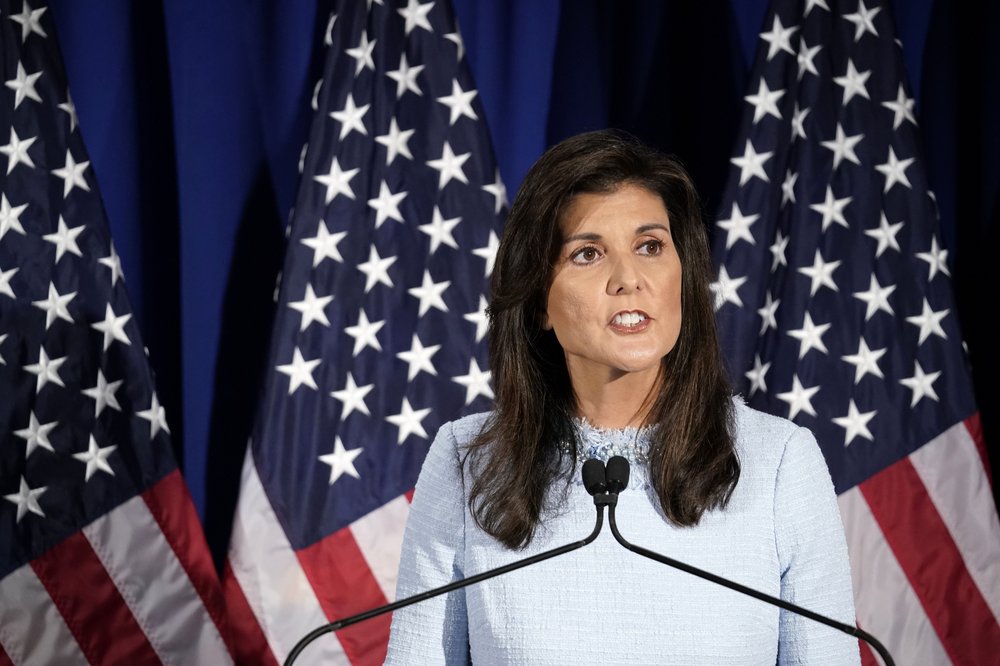
Haley, the former South Carolina governor and another presidential hopeful, told Fox News there was no need for a trial in Neely’s death, which the medical examiner’s office ruled a homicide caused by compression of the neck. Haley said Gov. Kathy Hochul should pardon Penny “right away.”
Hochul told NY1 that Haley had it all wrong.
“I would think a former governor would know how a pardon works. It works after someone’s been convicted of a crime. You don’t pardon after there’s just been an indictment No. 1, so wrong on that front,” Hochul said.
“Secondly, let the process play out,” Hochul added. “The district attorney indicted after serious deliberation, looking at the facts, witnesses, the video. And my view is that this individual who was killed on the subway had mental health challenges and deserved to walk off that subway alive.”
‘Living out the heartbeat of God’
The GiveSendGo crowdfunding platform was founded in 2013 by Jacob Wells, a Navy veteran who serves as its chief financial officer. He describes it on LinkedIn as “a unique social crowdfunding platform for those living out the heartbeat of God.”
It has hosted funds for commercial truckers opposed to vaccine mandates; Proud Boys members charged in the Jan. 6 insurrection; and Kyle Rittenhouse, who was acquitted of homicide after killing two people during a 2020 protest in Kenosha, Wisconsin; in addition to a panoply of campaigns for those looking for help paying medical bills, funeral expenses, veterinarian bills and housing expenses.
Attorneys Steven Raiser and Thomas Kenniff, who represent Penny, said in an earlier statement that their client “stepped in to protect himself and his fellow New Yorkers” during the fatal confrontation. In a message on the GiveSendGo page they set up, they wrote that proceeds will “pay Mr. Penny’s legal fees incurred from any criminal charges filed and any future civil lawsuits that may arise, as well as expenses related to his defense.”
Any excess funds, according to the lawyers, “will be donated to a mental health advocacy program in New York City.”
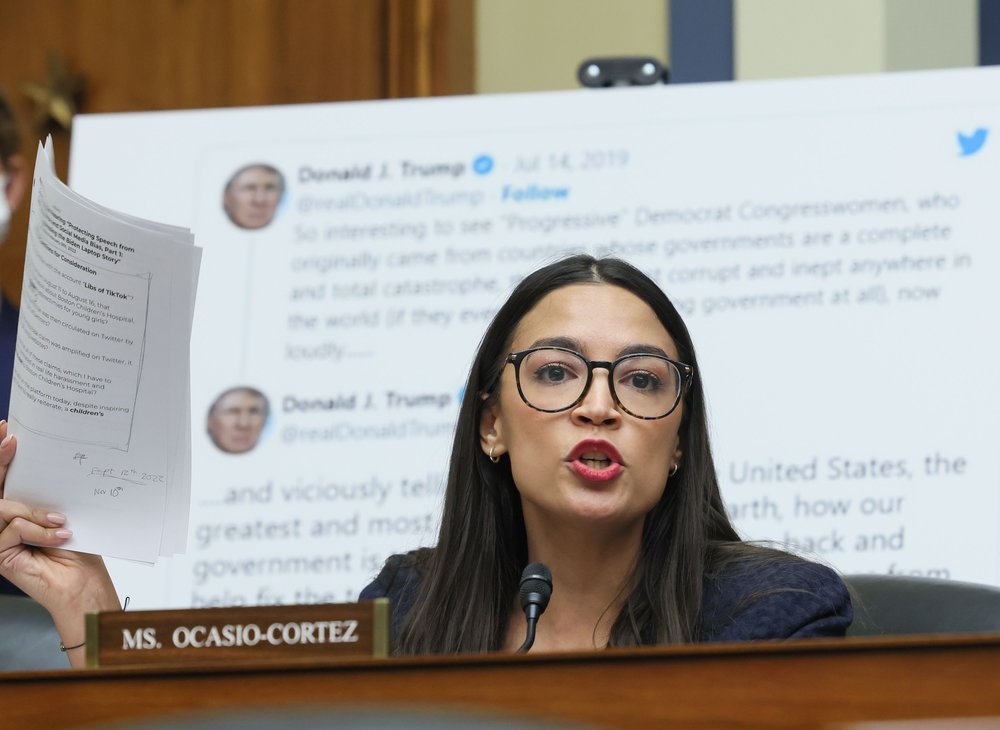
Neely’s killing prompted days of protests and demonstrations, with many participants questioning why Penny, a white man, was allowed to go free after the death of Neely, a homeless Black man.
Democratic elected officials have expressed alarm over the killing, with some saying such incidents were inseparable from racist perceptions of Black people.
“Racism that continues to permeate throughout our society allows for a level of dehumanization that denies Black people from being recognized as victims when subjected to acts of violence,” said Council Speaker Adrienne Adams in a May 3 statement.
That same day on Twitter, Rep. Alexandria Ocasio-Cortez said Neely “was murdered,” while City Comptroller Brad Lander wrote a day earlier that “NYC is not Gotham. We must not become a city where a mentally ill human being can be choked to death by a vigilante without consequence.”
In a May 10 speech, Mayor Eric Adams urged the public to allow the investigation to proceed but also noted that Neely was “Black like me,” and that he’d named his own son Jordan.
“Jordan Neely’s life mattered,” said Adams. “One thing we can say for sure: Jordan Neely did not deserve to die.”
Deciding what’s reasonable
In New York state, a second-degree manslaughter charge applies when someone is accused of recklessly causing the death of another person. It’s a class C felony, punishable by up to 15 years imprisonment.
In legal proceedings going forward, Candace McCoy, a professor at John Jay College of Criminal Justice, said that a jury would likely be tasked with determining how others saw the circumstances on the subway.
“Were there other people feeling threatened?” asked McCoy. “Was it a reasonable thing to intervene?”
Independent journalist Juan Alberto Vazquez was on the uptown F train when he said Neely started yelling that he was tired and hungry and that he didn’t care if he went to jail or died. Then, Vazquez said in an interview, Penny took Neely to the ground and put him in a chokehold. It was Vazquez’s video that then went viral.
“You’re carrying around a whole bunch of messages, [including that] Blacks are much more dangerous than whites, Hispanics are more dangerous. Even though you don’t realize you think that, you do.
Michael Asimow, author of “Law and Popular Culture”
McCoy said a jury would likely consider Penny’s training as a Marine, which could show that he was more aware than most people that his use of force was potentially deadly.
At the same time, she said, the perceptions of danger in the subway will be shaped by the experiences of average New Yorkers, who will be the ones to weigh the evidence put forth at trial.
“They’ll be drawn from Manhattan and they will probably be drawn from a pool of people who ride the subways,” said McCoy, “and have probably been experiencing people who are acting out in various ways, indicating mental distress.”
Regardless of the outcome of the criminal case against Penny, McCoy said it’s highly likely there will be money left over in his fast-growing legal defense fund. In which case, she said, Neely’s family would probably target the fund as part of a civil suit.
Before Bernhard Goetz
That conservative politicians and commentators have sided with Penny is hardly unusual, according to legal scholar Michael Asimow, the author of “Law and Popular Culture.” The praise is part of a historic pattern of conservatives cheering on those who take the law into their own hands, both in real life and in popular culture, and often here in the city.
Years before Bernhard Goetz became the face of New York City vigilantism when he shot four young Black men in the subway in 1984, the idea of regular people taking the law into their own hands had become a recurring theme in popular culture. This included the 1971 novel “The Fall of New York;” Jules Feiffer’s play and 1971 film, “Little Murders;” and the “Death Wish” movies, which premiered in 1974.
At the time, the city’s demographics were rapidly changing. More than a million white residents fled the five boroughs between 1950 and 1970, while the Black population more than doubled and hundreds of thousands of newcomers arrived from Puerto Rico.
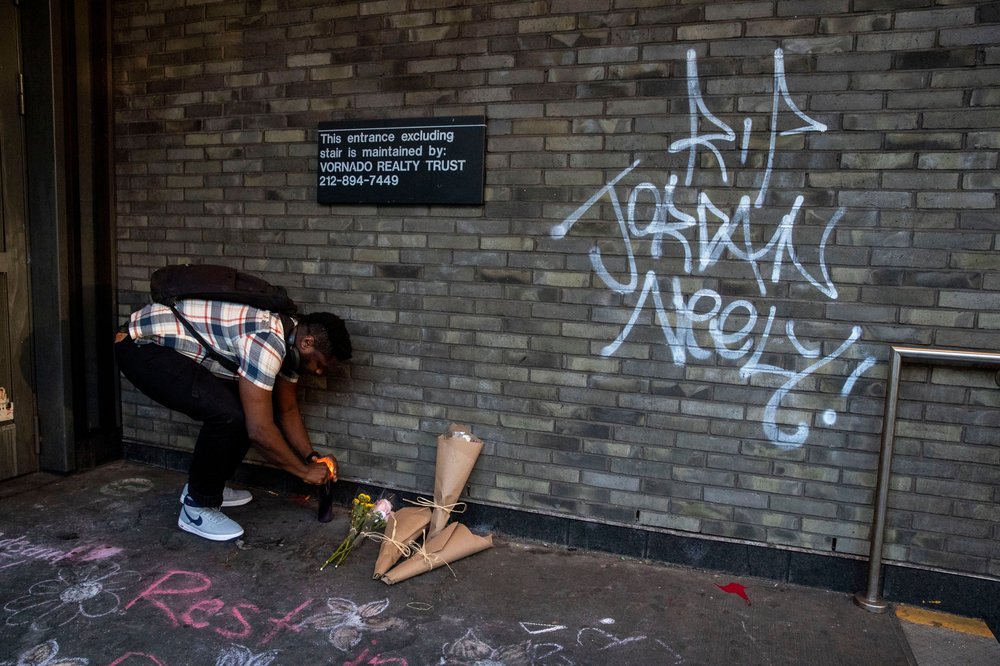
In more recent years, the debate has extended to a series of “Stand your ground” laws, which erupted into view after the 2012 killing of 17-year-old Trayvon Martin, a Black Floridian shot and killed by George Zimmerman. This year, the police chief of Kansas City, Missouri said investigators were considering whether the state's “stand your ground” law factored into the shooting of 16-year old Ralph Yarl, a Black teen, at the hand of 84-year-old Andrew Lester.
“It’s really part of the texture of American culture,” said Asimow. “That when the police aren’t there or won’t do anything about it, you should take the law into your own hands.”
Asimow said the ideas constantly circulated by popular culture helped contribute to implicit bias, which can explode into public view.
“You’re carrying around a whole bunch of messages, [including that] Blacks are much more dangerous than whites, Hispanics are more dangerous,” Asimow said. “Even though you don’t realize you think that, you do. And, therefore, when an event occurs, such as unruly behavior on a subway car, you’re more likely to be really scared if it's a minority, and take violent action.”
This article was updated with additional information about donations to the Penny and Neely crowdsourcing campaigns. It was additionally updated to correct the title of Brad Lander.
Jordan Neely's death in the subway evokes talk of another time in NY Daniel Penny, man accused in deadly F train chokehold, arraigned on manslaughter charge Subway rider who put Jordan Neely in chokehold offers condolences, says he was protecting himself and others